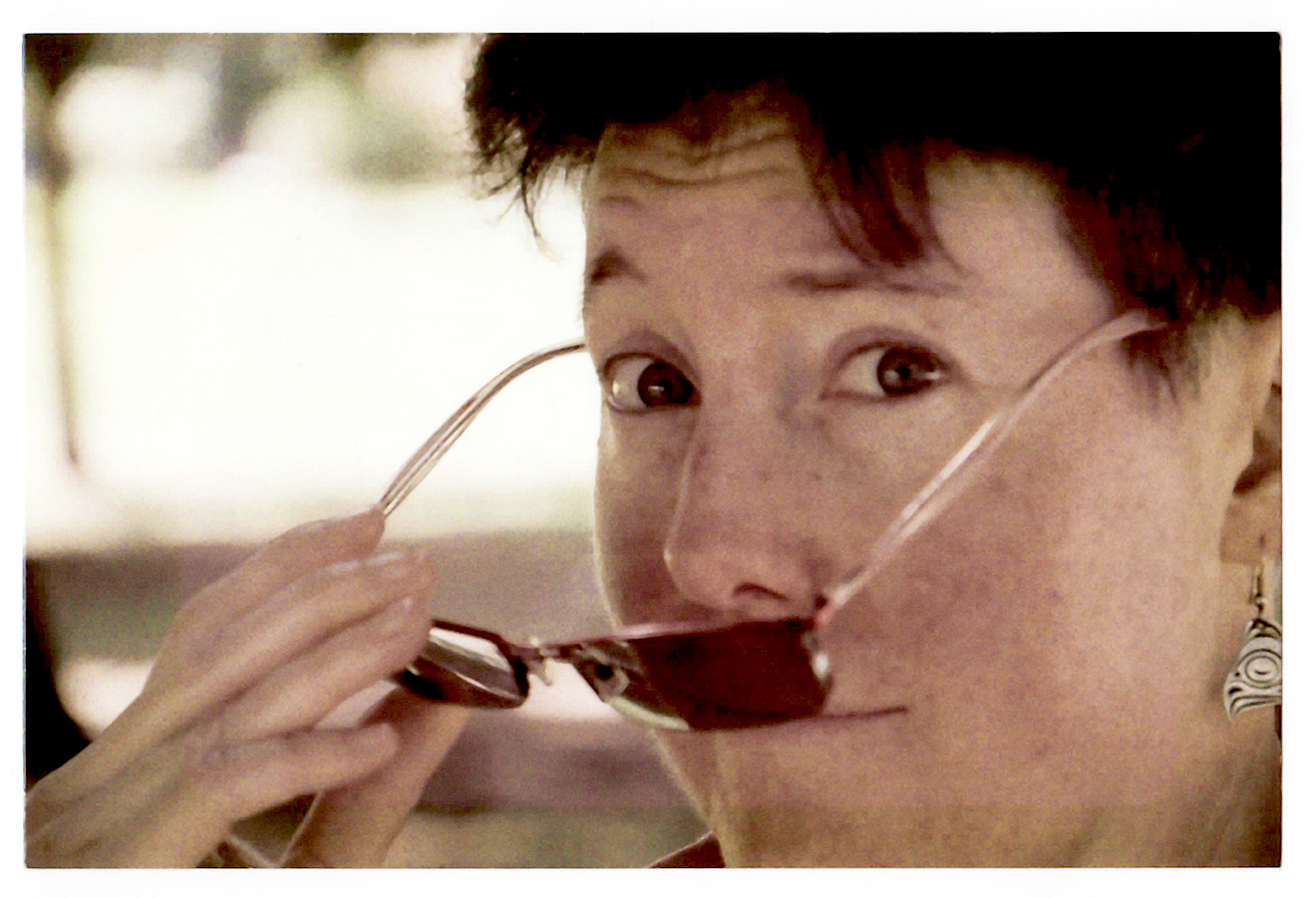By MB Austin
When did you first know you were ___? That’s always a fun getting-to-know-you question, especially if the person asking fills in the blank with a lesbian. Which they often do, because I’ve been happily, matter-of-factly married to a woman for so long. (Of course, no one who mistakes me for straight thinks to ask this question, but that is a topic for another day.)
Regardless of what label gets dropped into the inquiry, the answer is “just the facts, ma’am.” It goes something like this: Well, around fourth grade, I realized I had crushes on some of my school friends: girls and boys. Also around that time, I saw a big-screen movie with the predictable romantic climax where the (predictably male) hero kisses the (predictably female) love interest, and I realized very clearly that I did not know which character I would rather be in that scene.
My feelings were real, I was certain, but they were different, because all the other girls only ever talked about the boys they crushed on. I didn’t have a name for what that meant about me, and I didn’t know anyone I felt comfortable asking. As an avid reader, I knew there were words I could use, and that I would find them in the pages of the stories about other people who shared this one trait with me. Eventually.
By high school I was aware that gay men existed, because the couple who owned a shop together in town were matter-of-factly not just business partners. I had no such empirical evidence of female couples, but I knew they must exist—somewhere. At this point, I wanted to be part of a couple; and guys were readily available. I dated, dipped my toe into sex (no, not literally), and added to my own story. But in my internal narrative, I never changed my identity to straight—I was just exploring what I could with limited options.
College opened those options up, bringing me stories (fiction and non-fiction) of other bi people, and with them words to describe myself. However, with the first social group that didn’t assume I was straight also came the first assumptions that I must be a lesbian. Thus began the first in a long series of comings out as bi and of confronting a perplexing array of stereotypes and misconceptions. Some were honestly uninformed and easy to correct, others openly hostile and entrenched in prejudice. That when did you first know question could be delivered as a warm invitation to share my individual, personal journey or as a skeptical challenge, an implicit refutation of my knowledge of myself.
The very last time I came out as a single adult was at my wedding, in my vows. The story I was trying to tell my wife, in front of our friends and family, was the one I tell myself. I have loved others; I could love others; but yours is the unique and precious love I cannot live without. If I’d taken out the gender references, it would be the same story all marriage vows boil down to.
As a married person, my romantic history and potentiality loses its relevance to most other people. Granted, my wife and I both fess up to our rare “married, not dead” moments of gob-smacked admiration for other individuals. But I almost never find myself facing the questions single people do, about who I am open to dating/ what I’m looking for romantically/ whether I have ‘a type,’ etc. The introvert in me is delighted that inquiring minds turn their attention elsewhere now.
The activist in me, however, prickles whenever I’m mislabeled. It’s not the labels themselves that trouble me. There’s nothing inherently bad about being lesbian or straight, Christian, or Jewish, (to name just the four most common misassumptions made about me, in order of frequency). They don’t fit my story though, and if I accept them without comment then I re-write my own story and obscure the truth of me in the process.
Now that I am publishing fiction with (not so predictable) female heroes who fall in love with (hopefully equally fascinating) women, my life experience as a bi woman married to a woman shows up in two ways. First, I create main characters whom I love and respect and to whom I hope my readers can relate. Some self-identify as bi, some as queer, some as lesbian; and they fall in love with one another because each is that one right person for the other. And because I have the capacity to feel attraction to and imagine myself in a relationship with a person who lives outside the gender binary, there will in future be more characters who are non-binary, transgender, and genderqueer (hopefully equally nuanced). It is a weird sort of literary coming out, drawing on my own experience to create the story of someone who never lived off the page, but who feels like she could.
The second type of coming out is more direct. Because complete strangers want to know something personal about the writer behind the words, I have to peel off a few layers of introversion and tell them relevant parts of my own story. On panels, interviews and my website, the first layer mirrors what you get when I meet someone new in person: what I do, where I live, who I live with (“just the facts, ma’am”). The second layer starts to answer the how do you and why do you, and when did you know kind of questions. That’s where you’ll learn the stories I tell myself, about myself.
MB Austin lives with her wife in Seattle, an excellent town for coffee-fueled writers who don’t need too much sun. Learn more at www.mbaustin.me.

